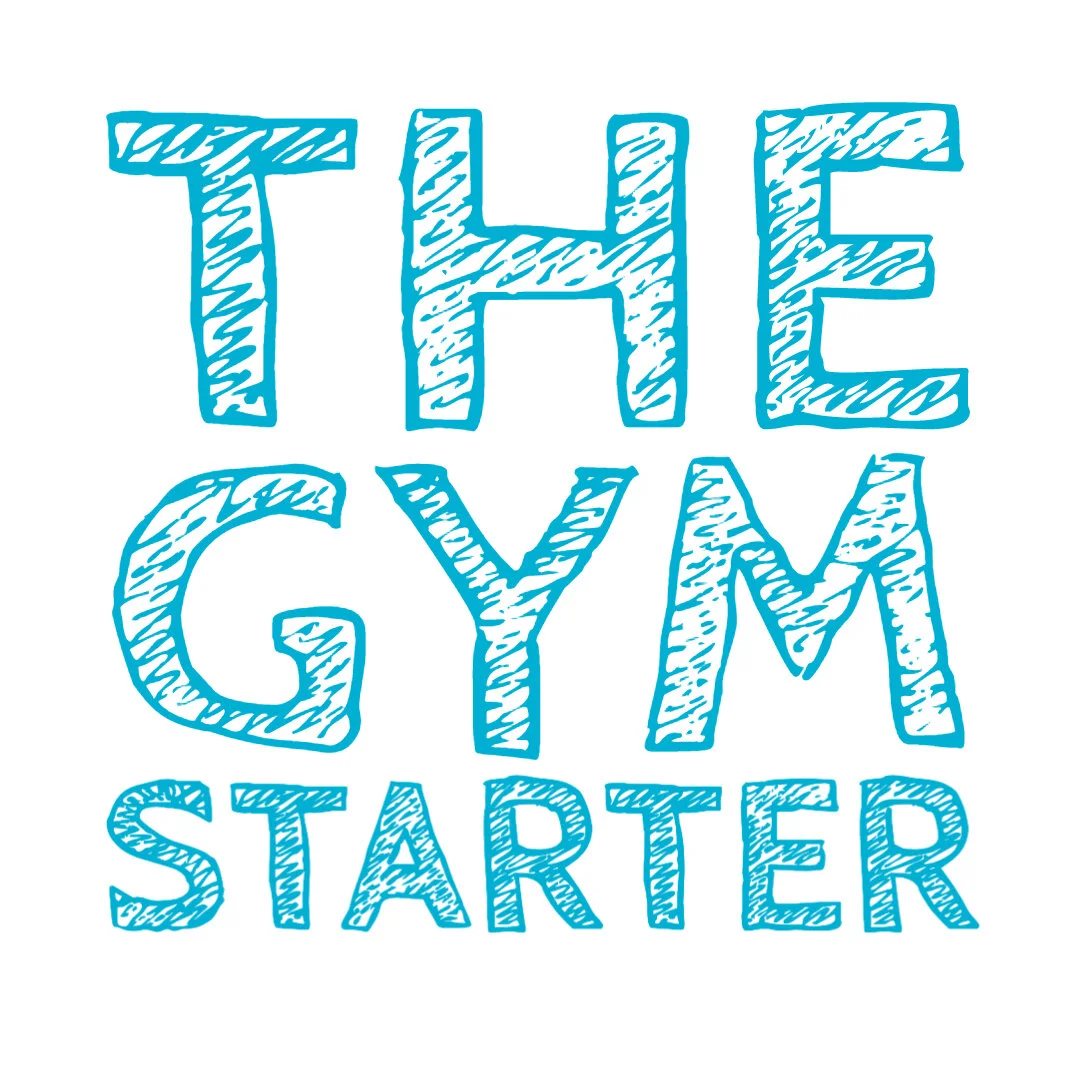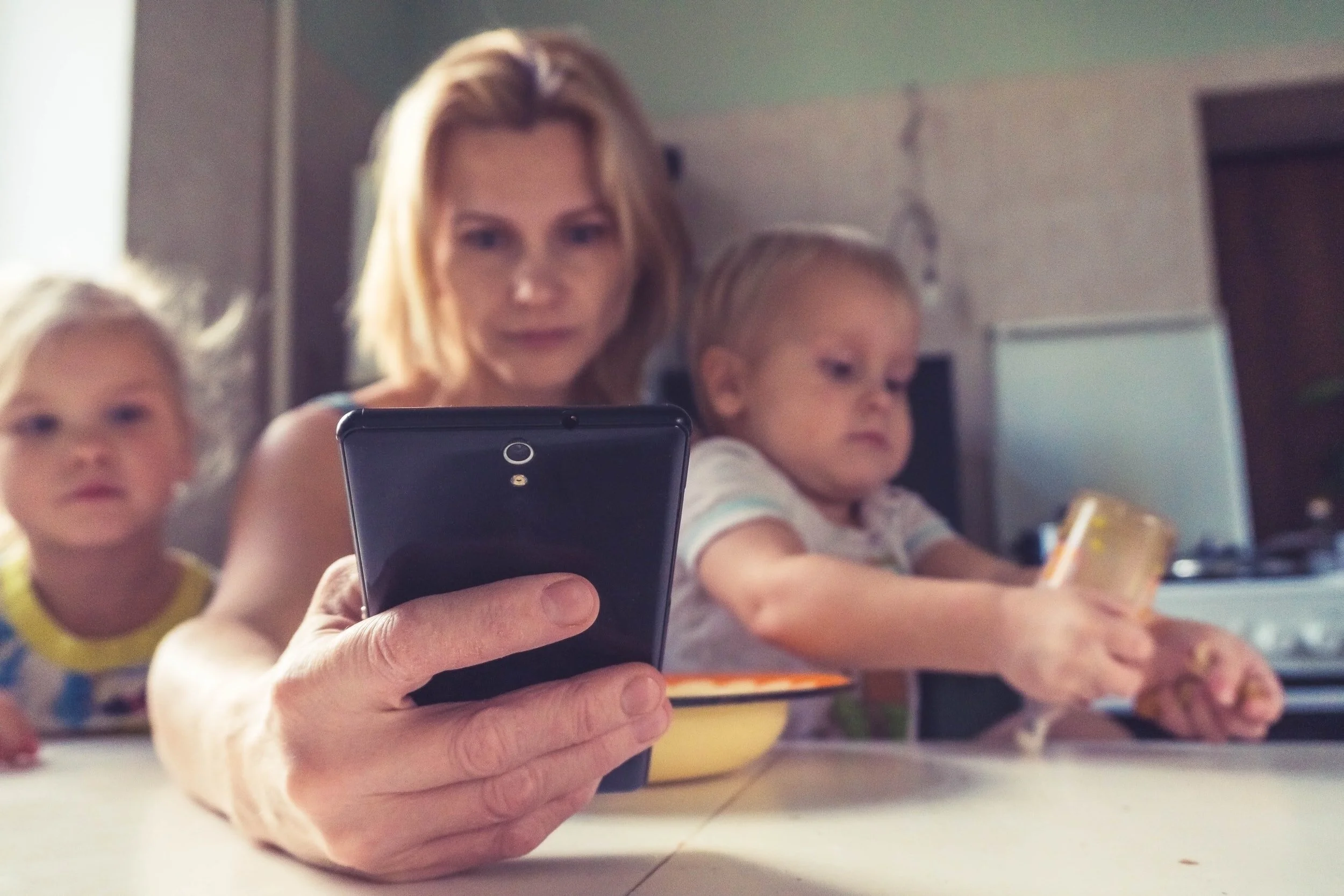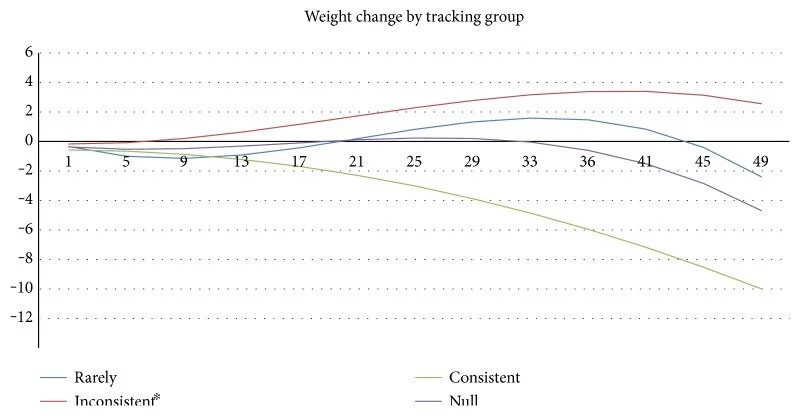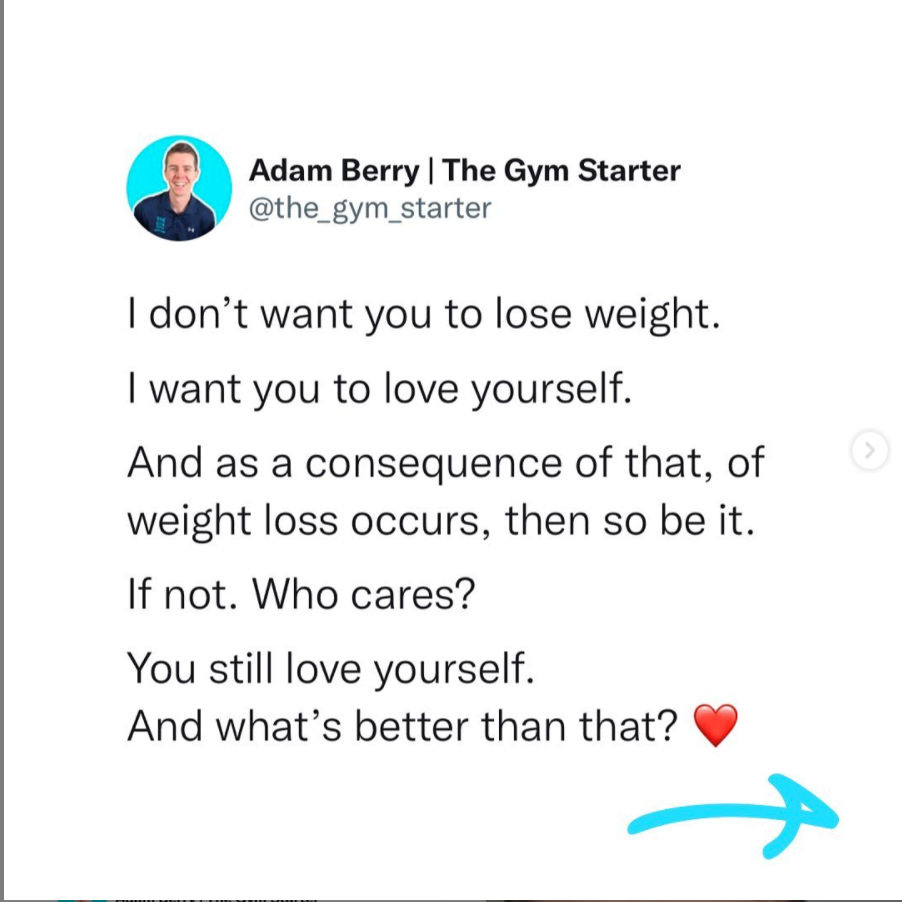7 Practical Tips To Make Counting Calories Easier
One of the most frequent complaints I get from clients on the Strong & Confident Program is that they just don’t have the time to track their food.
Once they have cooked the dinner, eaten the dinner and then washed up after - its either their bedtime or their children’s bedtime…and the act of meticulously going through what they ate that day, and most importantly trying to remember everything they ate that day, is obviously going to be the last thing on their mind - whether they want to achieve their goals or not.
And I get it.
80% of my clients, throughout my career have been busy parents, and realistically you have to look at their lives and question whether tracking their calories is really going to add stress or take the stress away from their life.
And much of the time it will add stress - which will have far more negative repercussions on their fitness than whether they choose to track calories.
About a month ago, I did a Seminar here on the Gold Coast, Australia, all about Tracking your calories, and I wanted to share with you what we all went through on that day.
Table of contents for: 7 Practical Tips To Make Counting Calories Easier
Does Calorie Counting work?
Why should you track your food?
Informed Consent on tracking your calories
7 Tips to make Counting Calories Easier
How To Be In A Calorie Deficit Without Logging Your Food
There is a quick summary of my 7 Practical Tips on YouTube. But to understand the principles and the whys and wherefores behind counting calories - keep reading!
Does Calorie Counting work?
This is a very hotly debated topic.
There are people out there…on the internet…who will tell you that tracking your calories simply doesn’t work…simply because the calorie amounts on packages aren’t accurate.
This study [1] called ‘Food Label Accuracy of Common Snack Foods’ found that:
“Measured energy values exceeded label statements by 8% on average in pre-packaged convenience meals (12), which is slightly higher but consistent with the label disparity of 4.3% in packaged snack foods. Also consistent with this study, most products in our sample fell within the allowable limit of 20% over the label calories per Food and Drug Administration (FDA) regulations”
This is a shocking revelation, but it’s still only 8% out.
The last time I checked, 8% was a pretty small amount. Let me put it to you thus, if I gave you 92% success in your Goals…would you take it?
Exactly.
So let me ask again; Does Calorie Counting Work?
And it’s a resounding yes provided you have never had an Eating Disorder.
If you have ever had an Eating Disorder then please don’t engage in Calorie Counting. And if you need help with that please contact the Charity BEAT here [2].
There are issues relating to Calorie Counting, and I go into those later in the article. But the main answer to this question is the following:
Yes. Calorie Counting does work.
This study [3] took participants over one year, and depending on their consistency with dietary tracking, split them into three Groups.
Rare Trackers equalling <33% days tracked (114 days out of 343)
Inconsistent Trackers 33-66% days tracked
Consistent Trackers >66% days tracked (228 days out opf 343)
Please note that consistent trackers qualify at just two-thirds of the time available to them - not 100% of the time available to them.
All participants were asked to:
Maintain daily food journals and physical activity records;
Reduce portion sizes;
Reduce foods high in calories, fat, and simple sugar;
Increase consumption of fruits, vegetables, and low-fat dairy products;
and
Weigh themselves frequently and at least weekly (more on this here)
They each worked with a Health Coach, and attended interactive sessions designed to educate them on nutrition and exercise adherence.
The results were:
“Only consistent trackers had significant weight loss (-9.99 pounds), following a linear relationship with consistent loss throughout the year. In addition, the weight loss trend for the rare and inconsistent trackers followed a nonlinear path, with the holidays slowing weight loss and the onset of summer increasing weight loss. These results show the importance of frequent dietary tracking for consistent long-term weight loss success”
It also concluded the following:
“Early in the program weight change of consistent trackers did not differ from rare or inconsistent dietary trackers. However, rare or inconsistent trackers gained weight during the holidays but the consistent trackers' rate of weight loss did not change as they sustained their rate of weight loss from the first quarter. Hence, successful behavioural interventions should emphasize the benefits of consistent dietary tracking for participants, motivating individuals to track for at least 5 days of each week for sustained and clinically significant weight loss"
This study teaches us a lot about weight loss.
The first lesson is that consistency is what matters, and consistency doesn’t mean as much as you think it does. It is simply just two-thirds of your time.
The second lesson is that tracking is a behaviour that supports other behaviours like having a Coach, reducing portion sizes, and eating more fruits and vegetables.
The third lesson is that scientifically 10lbs is a significant amount of weight to lose in a year.
As a coach, my point here is you need to stop comparing yourself to people on Social Media. What you see on there, compared to what real world results truly look like vary greatly.
Follow Me On Instagram:
Why Should You Track Your Food?
One of the most common occurrences in people who are trying to lose weight and getting frustrated with the outcomes in terms of weight loss is that they often overestimate the calories they are burning and underestimate the calories they are consuming.
As this study concludes:
“The failure of some obese subjects to lose weight while eating a diet they report as low in calories is due to an energy intake substantially higher than reported and an overestimation of physical activity, not to an abnormality in thermogenesis.”
This basically means that it comes down to your Calorie Deficit, rather than there being an issue in the way your body metabolises food.
The hypothesis has been tested in two other ways as well. This study pipped Dieticians against Non-Dieticians and found that even dieticians under-report their energy intake somewhere between 223 and 116 kcal/day, compared with the non-dieticians who underreported between 429 and 142kcal/day.
This just goes to show…that even those who are really well educated on food and nutrition still underestimate the calories they are consuming.
This doesn’t mean that learning about nutrition and your food isn’t worthwhile. The dieticians were still better with an average over-reporting of 169.5kcal/day compared to the non-dieticians which averaged 285.5kcal/day.
And finally,
This study actually paid people to be accurate. They were giving out $50 bonuses to be accurate with their diet recall on four occasions. One group had to be accurate the first two times, the second group accurate the second two times, and one group received no bonus at all.
And guess what happened:
“Energy intake did not differ within or between groups at any time, and the number of under reporters was not associated with group at any time. Overall, the incentive was ineffective.”
So by tracking your food, you reduce the risk of being inaccurate. In fact, tracking your food is the most accurate way to tell if you are or are not in a calorie deficit for that day. We have no other way of knowing this information, and if you want instant feedback about your weight loss day on day - then tracking your food is the best way to go about it.
In terms of overestimating the number of calories, you are burning this comes down to many things. The main one is that we trust our smartwatches to be accurate with this information when this study [5] demonstrates.
It found that Smartwatches at their most accurate, in terms of judging energy expenditure are off by between 27% and 93%.
The study also found that they are better at reading heart rates.
Personally, as a Coach, I don’t like clients on my Strong & Confident Program to focus on Calories burned from exercise - because that can destroy your relationship with exercise and create very extreme behaviour that will only lead to failure.
You should focus on eating to your deficit - and exercising to get strong enough to fight a bear in the woods.
Informed Consent when tracking your food
As I mentioned above, you should not track your food if you are recovering from any form of Eating Disorder.
But I also take my responsibility for your Mental Health very seriously so I want to let you know about the drawbacks of tracking your food, before I give you the 7 Practical Tips To Make Counting Calories Easier.
Then you can decide whether or not it is a behaviour you are safe to engage with.
This study [6] analysed 5.5k posts on Community Forums, like MyFitness Pal, and discovered what the practical difficulties are with tracking food.
Success is attributed to a “goal weight achievement”
Of 94 people, only 22 thought they were empowered enough to no longer need to track their food
Can be a tedious practice
Not knowing how much of a food to enter
Not being able to find foods in the database
How do you track restaurants and eating at a friends house?
When asked to rate difficulty by meal type, respondents rated packaged food (average: 6.5) and fast food (6.3) as significantly easier to journal than home-cooked meals (4.6), buffet meals (3.7), ethnic food (3.7), restaurant meals (3.6), foods served by friends (3.2), and foods consumed at parties (2.9)
I’d just like to highlight a few points here:
“Success is attributed to a “goal weight achievement” - this is always going to be an issue on an App like MyFitness Pal - because it keeps reminding you how much you will weigh in x amount of days, if you keep up the behaviour you set that day. Although some will find this motivating I am here to tell you that your success is not defined by hitting a weight on the scale. Your success is determined by engaging in behaviours over a consistent period of time. If you set these behaviours and execute you will gain confidence and strength - as a consequence of that you might lose weight.
I think I summed this up best when I said on Instagram:
“How do you track restaurants and eating at a friends house?” - there are two schools of thought here:
If you don’t eat out too often - mainly if it’s just a special occasion - then you shouldn’t be tracking in the first place, you should be enjoying the moment.
If you eat out more and are worried about the calories, do your best at figuring out what you had when you get home…then add 30% to account for factors of food that are out of your control - like the amount of oil used by the Chef.
The same study [6] then also analysed Mental Health outcomes relating to tracking food and it found:
Food journalers report feelings of shame, judgement, or obsession associated with current designs. P6 reported journaling “made me feel guilty sometimes”, while P27 noted a lack of positive feedback: “I always felt guilty when I ate too much, and there wasn't that much pride when I was under my goal.”
“Sometimes I feel like not logging things because I know it’s really unhealthy.
“It made me too focused and obsessive about what I was eating”
“It was more of an on the way to an eating disorder thing than anything else (tried to keep calories extremely low)”
“I think I was hesitant to do the logging if not alone”
“I had more of a problem with eating out at a friend’s house because I didn’t want to ask for ingredients or mention that I was logging calories”
You should never feel shame around a behaviour you are engaging in and if you are feeling that way then please do not operate in that behaviour.
If what you are doing is not making you feel strong and empowered - then why o why are you doing it?
You shouldn’t have to suffer - and I don’t want you to suffer at all.
In terms of going over your calories sometimes - and that leading to a feeling of failure - please remember that no matter what you do - you can’t fuck this up - because when you engage in a fitness journey - it shouldn’t be defined by an endpoint, it should be a move to building an active lifestyle and pulling yourself into balance.
Therefore, all you have to do is get back on track the very next day.
The human body doesn’t gain weight that quickly, so there really isn’t a need to panic when you go over.
1. Don’t try to be perfect in an imperfect system
The whole system around calories is flawed.
When we establish someone’s Basal Metabolic Rate which is the point upon which we begin to figure out their deficit calories we are making it our “best guess”. This guess is based on years and years of study across millions of people, but it is still a guess.
And the food industry does the same. In 1991 the Australian Food Standards Code used to state:
“That the value shown in a Nutrition Information Panel was deemed to comply if these values (of energy, carbohydrate, starch or fibre) did not vary by more than 20% from those values actually present and 10% variation was permitted for other nutrients”
And although these figures are no longer part of Law they are still regarded as acceptable folklore in the Food Industry.
The current Australia New Zealand Food Standards Code does not permit or mandate any limits on accuracy of the levels of nutrients expressed in Nutrition Information Panels but only requires that these values be ‘average’ values. Maximum and minimum quantities are required in regard to claims for polyunsaturated and monounsaturated fatty acid contents of food.
And in the US a study called “Food Label Accuracy of Common Snack Foods” [7] we have already seen that calories in published are not that reliable.
Being consistent with tracking your food, to get a best guess is good enough, and by doing that you still get results as you will be holding yourself accountable and over time will improve your choices to help you get to your goals.
2. It’s Not A Life Sentence; its a Period of Education
When you approach anything in life with the view of “What can I learn about this?” as opposed to “Can I pass or fail this?” you will automatically improve your relationship with that behaviour.
Tracking your food is no different. You should do it to learn about the energy in food, to learn about how your choices over a day impact your energy and ability to control your stress. Its a way of finding out if your weekends are destroying your progress and what eating in balance really looks like.
You get to decide when that period of education is over and when you feel empowered enough to move away from tracking your calories - because that is the goal here. The goal isn’t to be tied to MyFitness Pal for the rest of your life.
You should want to be educated enough about nutrition so that you never have to open an app ever again.
3. There is no right or wrong, just exploration
One of these days I’m going to get this printed on a t-shirt. It’s true of exercise, and it’s true of nutrition.
If you go over your calories, the only person judging you is you.
If you don’t hit your protein target, the only person judging you is you.
Every time something sub-optimal occurs the good news is that you have the opportunity to learn from it, grow from it, and ultimately succeed from those lessons.
You are only every investigating, course correcting and developing - you are not passing or failing.
4. If it’s in a packet: Track it!
This is so simple it hurts. MyFitness Pal and any other tracking app you might use will have what’s called a Barcode Scanner. It will literally take you a matter of seconds to get all of the nutritional information you need about that food by scanning the barcode.
Therefore if you eat something with a barcode. on the packet - which will be a fair 75% of the food you eat - just track it.
5 . Set Up generic value amounts for Fruits and Veggies
Let’s be very clear - no one ever gained weight from eating too many fruits and veggies. Even if you are a Vegetarian, I promise you fruits and vegetables in your diet are not the problem here.
And when it comes to tracking them, they can be really annoying to put into an app accurately.
Therefore you should just set up a generic value for Fruits and Vegetables, save that into your App and just use those every time you have your Veggies at dinner.
Personally I just scan a bag of frozen vegetables set it to 100g and use that every time I have dinner - irrespective of what the Vegetables actually are.
6. Eating Out? Add 30% to your meal
I alluded to this earlier in the article - but it’s a strategy that makes everything. more accurate for you when you are trying to track your food.
The best way to track your food when eating out would be the following:
1. See online if the restaurant publishes their calories
2. In the restaurant take a photo.
3. When at home, best guess the amounts.
4. Add 30% to every amount even if the restaurant does publish their calories
That way you have the bases covered.
And remember if you are out celebrating - celebrate. Don’t worry about the calories on special occasions - just worry about getting back on track the next day.
7. Cook Meals that are already Calorie Tracked
This is the one that perplexes me the most when it comes to people who are trying to lose weight and using calorie tracking as a solution to that.
It also perplexes me with clients on my Strong and Confident Program - who are tracking - as they have access to over 250 recipes all with calorie tracked barcodes including vegetarian and vegan options - yet they still say that tracking is too hard for them.
All the hard work has been done for you.
In fact, if you Google “MyFitness Pal Dinner Recipes” you get 688,000 results and the top one is all with the Macros and Calories already figured out for you.
So use that resource.
I guarantee you will be able to find a version of your favourite meal that is now Barcode Scannable or has all of the nutritional information figured out for you. Then you just have to copy and paste.
The brass tax is if you can’t be bothered to copy and paste some information or spend ten minutes finding the information on the internet to be able to track your calories - then engaging in a fitness journey will always be a slog for you.
How To Be In A Calorie Deficit Without Logging Your Food
There are other things you can do to keep your calories in check without necessarily logging your food.
But bear in mind, the only way to truly know if you are in a deficit each day - is to log your foods.
I have two strategies for this.
The first is a three meals, two snacks which I outline here:
This is very simple.
Each day you are allowed three meals.
Each meal must fit on one plate.
Between breakfast and lunch and lunch and dinner you can have a snack.
I have found applying this structure is incredibly effective.
The second strategy is called The Five Awesome Rules For Fat Loss Life.
This is a list of 5 things you need in order to lose weight:
Be in a Calorie Deficit
Three Litres of Water A Day
Protein and Veggies at every meal
8-10k Steps A Day
7-8 hours of sleep a night
And if you want help figuring this out then watch this:
Did You Find This Useful?
Across this website, I have other Articles all about Tracking your Calories and managing your Calorie Deficit:
Added to that it would be AMAZING if you wanted to become my friend.
As my friend, I will send you some amazing help, like a book called 27 Ways to Faster Fat Loss, workout plans for both the Gym and home workouts, and much more. Just put your email in below:
References:
Jumpertz R, Venti CA, Le DS, et al. Food label accuracy of common snack foods. Obesity (Silver Spring). 2013;21(1):164-169. doi:10.1002/oby.20185
Beat. 2021. The UK's Eating Disorder Charity - Beat. [online] Available at: <https://www.beateatingdisorders.org.uk/> [Accessed 15 September 2021].
Ingels JS, Misra R, Stewart J, Lucke-Wold B, Shawley-Brzoska S. The Effect of Adherence to Dietary Tracking on Weight Loss: Using HLM to Model Weight Loss over Time. J Diabetes Res. 2017;2017:6951495. doi: 10.1155/2017/6951495. Epub 2017 Aug 9. PMID: 28852651; PMCID: PMC5568610.
Lichtman SW, Pisarska K, Berman ER, Pestone M, Dowling H, Offenbacher E, Weisel H, Heshka S, Matthews DE, Heymsfield SB. Discrepancy between self-reported and actual caloric intake and exercise in obese subjects. N Engl J Med. 1992 Dec 31;327(27):1893-8. doi: 10.1056/NEJM199212313272701. PMID: 1454084.
Shcherbina, A.; Mattsson, C.M.; Waggott, D.; Salisbury, H.; Christle, J.W.; Hastie, T.; Wheeler, M.T.; Ashley, E.A. Accuracy in Wrist-Worn, Sensor-Based Measurements of Heart Rate and Energy Expenditure in a Diverse Cohort. J. Pers. Med. 2017, 7, 3. https://doi.org/10.3390/jpm7020003
Cordeiro F, Epstein DA, Thomaz E, Bales E, Jagannathan AK, Abowd GD, Fogarty J. Barriers and Negative Nudges: Exploring Challenges in Food Journaling. Proc SIGCHI Conf Hum Factor Comput Syst. 2015 Apr;2015:1159-1162. doi: 10.1145/2702123.2702155. PMID: 26894233; PMCID: PMC4755274.
Jumpertz R, Venti CA, Le DS, Michaels J, Parrington S, Krakoff J, Votruba S. Food label accuracy of common snack foods. Obesity (Silver Spring). 2013 Jan;21(1):164-9. doi: 10.1002/oby.20185. PMID: 23505182; PMCID: PMC3605747.


















